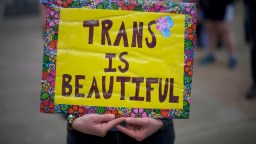human rights
What speech is harmful, how do we know, and what do we do if we find out?
The surprising results come from a new GLAAD survey.
Giving human rights to a being with unlimited knowledge? Probably not a good idea.
▸
8 min
—
with
Social citizenship is both a feeling of belonging and a definable set of commitments and obligations associated with living in a place; it is not second-class national citizenship.
There’s a hidden hypocrisy within bathroom laws based on biological sex.
▸
5 min
—
with




